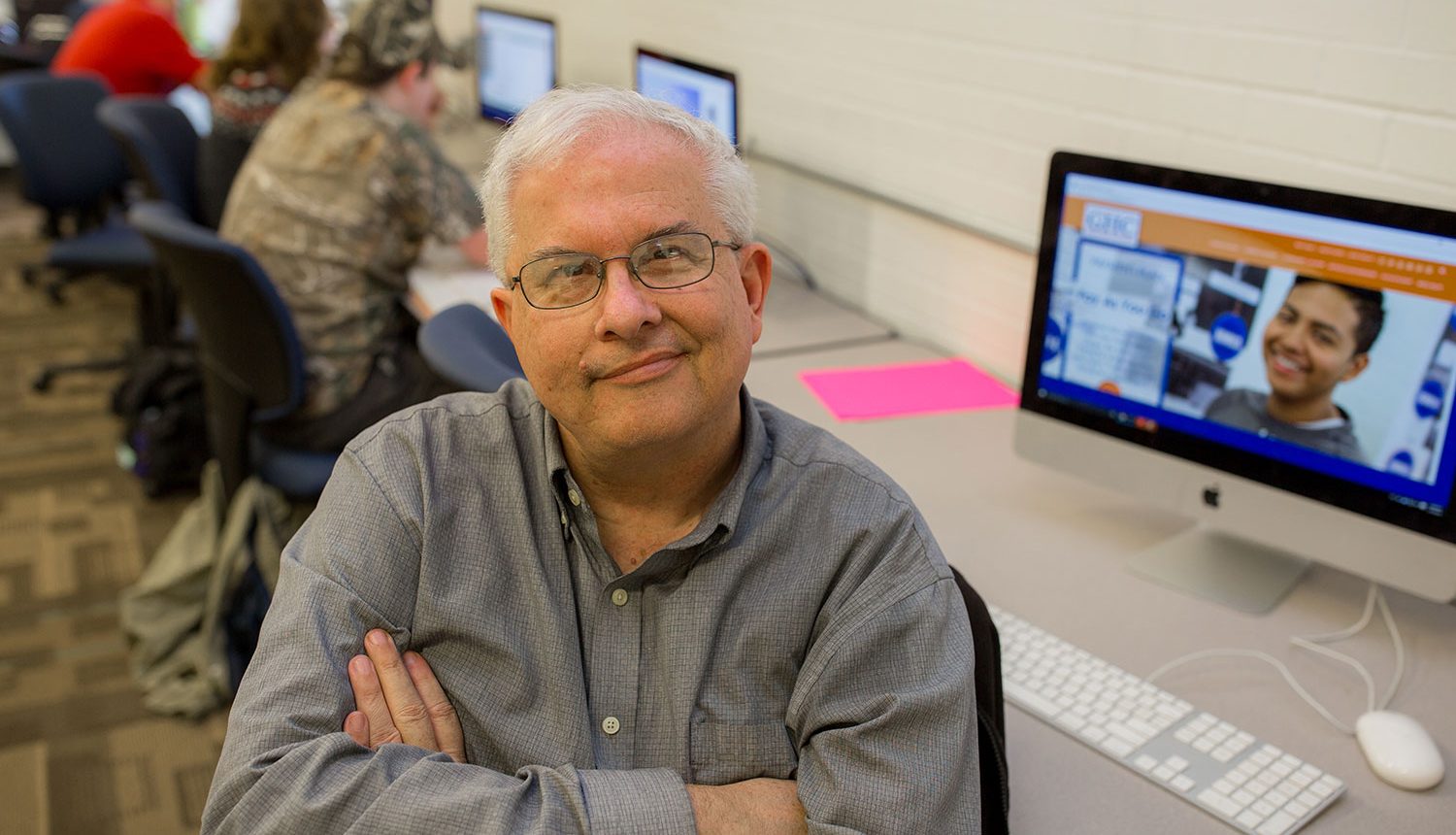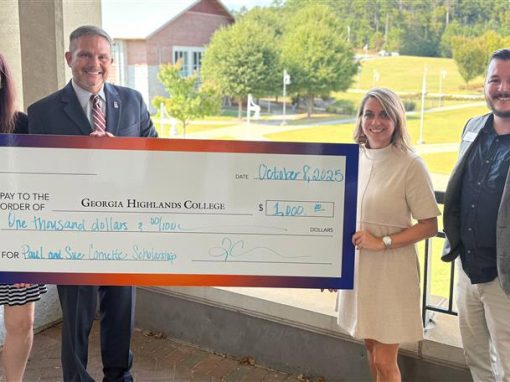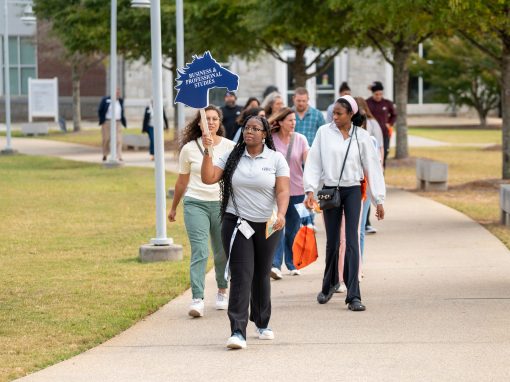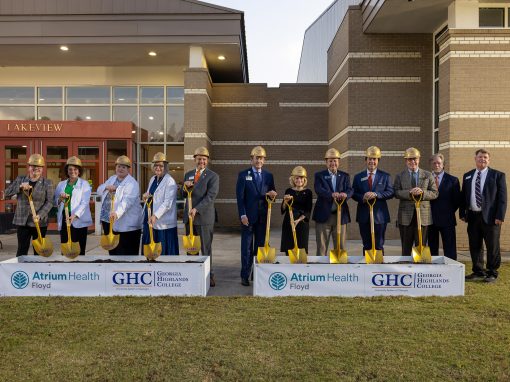Georgia Highlands College is highlighting faculty and staff administration across the college in this ongoing “GET TO KNOW” series. Next up is Harold Campbell, who serves as a writing, history, and political science tutor in the Tutorial Center on the Floyd Campus. He graduated from Floyd Junior College in 1978 and had a 25-year career as a daily newspaper reporter and editor before teaching English overseas from 2011-2016 and coming to GHC in 2017.
Campbell is the author of “Crazy People Like Us: Love & Loss on the Other Side of the World,” a memoir of his years teaching English in Russia and India published late last year, and he will be interviewed on Good Morning Rome with Elizabeth Davis on WLAQ on Oct. 5. The interview is scheduled for 8:45 a.m. He will also have a book signing at Dogwood Books on Broad Street in Rome on Saturday, Oct. 8, from 1 p.m. to 3 p.m.
In what ways does your role serve GHC?
Those of us in the Tutorial Center aim to help students improve their academic success by reinforcing what is taught in the classroom and assisting them in becoming independent learners.
What are some of your daily/ongoing responsibilities?
As a writing and history tutor, I am mainly responsible for helping students with planning and writing essays and research papers, both online and in person. I focus on showing students how, for example, they can enhance their papers with stronger organization and by replacing vague, general statements with facts and details.
What drew you toward a career in education?
Mainly because I wanted to use my own strengths and interests to help others. In addition, working at the Tutorial Center has allowed me to “give back” a little to GHC, where I began college way back when it was known as Floyd Junior College.
What do you feel is your greatest accomplishment?
That’s hard to say. I would start with the five and a half years I taught English in Russia and India and the book I wrote about the experience, “Crazy People Like Us,” that was recently published.
What are some of your interests/hobbies, and how do you enjoy spending your free time?
I don’t have a lot of free time, but I like reading, writing, music, hiking, sports, and exploring new places.
Do you have a favorite book or movie?
That’s another hard one. Some of my favorite books are “The Pursuit of God,” by A.W. Tozer, “The Course of Empire” by Bernard DeVoto, and “The Strange Career of Jim Crow,” by C. Vann Woodward. Some of my favorite movies are “The Day of the Jackal,” “Kelly’s Heroes,” and “Glory.” Of course, there’s the classic, “Monty Python and the Holy Grail.”
What is something people would be surprised to learn about you?
My first career goal was to be a play-by-play broadcaster for a pro sports team.
Why did you decide to write a memoir?
Even before I left Russia, friends encouraged me to write a book about my experiences there and in India. I started trying to write something while in Russia, but it was difficult. However, after my wife, Nadya, died unexpectedly, I knew I had a story to tell both for my own healing but also, I hope, to benefit others.
How long did you work on your memoir?
If you count from my first scribblings until now, it would add up to about six years. At first, I tried to write it more as a fictional story, but I found my main points were covered over by the intricacies of the plot. After returning to the U.S., I decided to make it a straight memoir. My progress was still slow because in the midst of the grief following Nadya’s death, it was hard to bring up memories and put them on paper. However, when the nation went into lockdown in spring 2020, I used the extra time to write an initial draft that became the basis for the finished product.
Are there any particular stories in your book that are especially significant to you?
Nadya’s death is the most significant to me personally, but I think there are stories of my everyday life in Russia and India that people might find interesting. For example, there is my first solo visit to a Russian grocery store, interacting with children inside an Indian orphanage, and the interesting things Russian adults sometimes say in English class. With the current situation involving Russia and Ukraine, I hope the insights I give in the book will benefit readrrs.
What do you hope people will gain from reading your book?
Besides recognizing how blessed I was to be married to Nadya, for one, I hope people can see the rewards of coming out of their comfort zones. It probably won’t mean traveling halfway around the world, but it may very well mean speaking to a neighbor, helping a stranger, or listening to someone cry out in emotional pain when you have no idea how to help them. In addition, I hope readers can see the value of curiosity about other cultures and the world around them. Finally, I hope people see how interconnected we all are and how we can hold differing opinions but still respect each other. An example of that from the book was a scene where I as a Christian and a graduate student in India who was a devout Hindu discussed the basic tenets of our faiths with complete honesty and respect. It was an amazing experience.
Do you have any advice for others who have considered writing a memoir?
Even though it’s painful, don’t be afraid to bare your soul. As my editor and publisher, Rachel Pennacchio, told me at the beginning of the editing process, the more vulnerable you make yourself, the more your book can help people. This was my main motivation in writing the book.
Can you provide us with your background at GHC?
I attended Floyd Junior College from fall 1976 to spring 1978. I worked in what was then known as the Public Information Department in 1976-1977 and was assistant editor of the Six Mile Post in 1977-1978. I graduated from FJC in spring 1978 with an A.A. in journalism. Currently, I am a writing, history, and political science tutor with the GHC Tutorial Center on the Floyd Campus.



